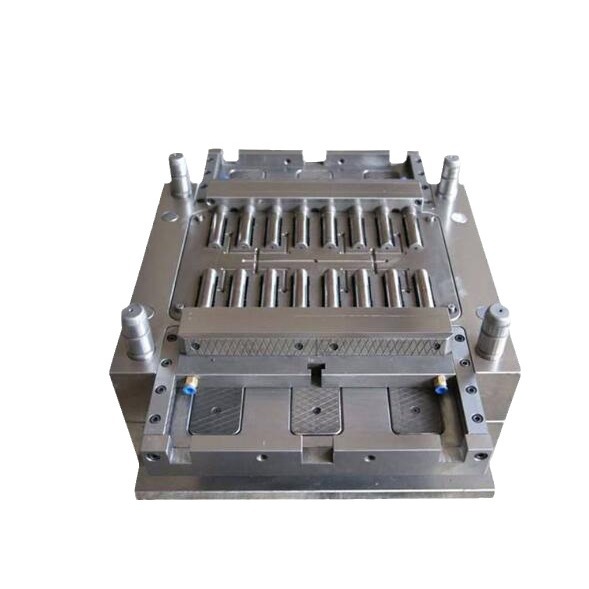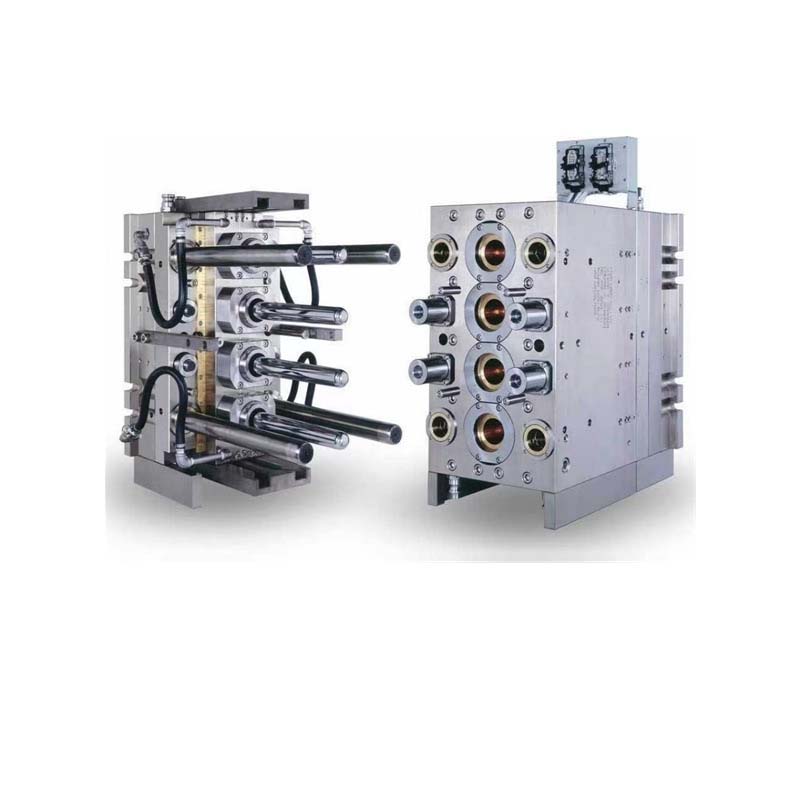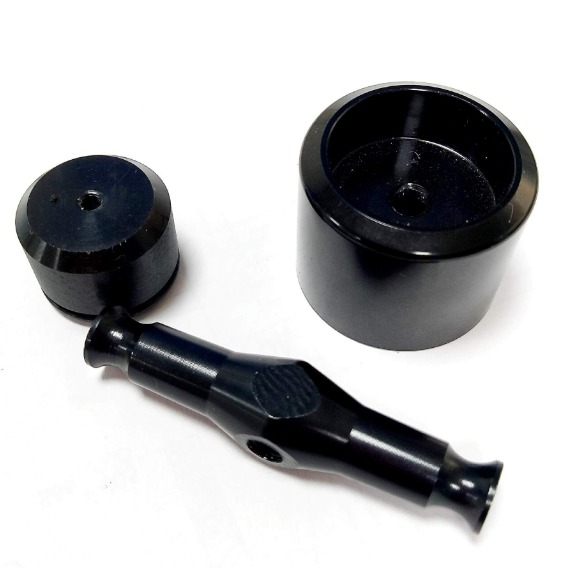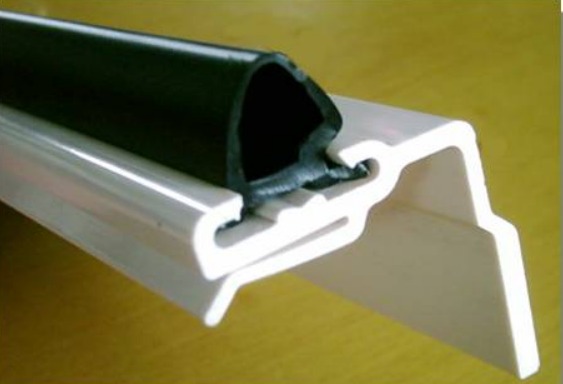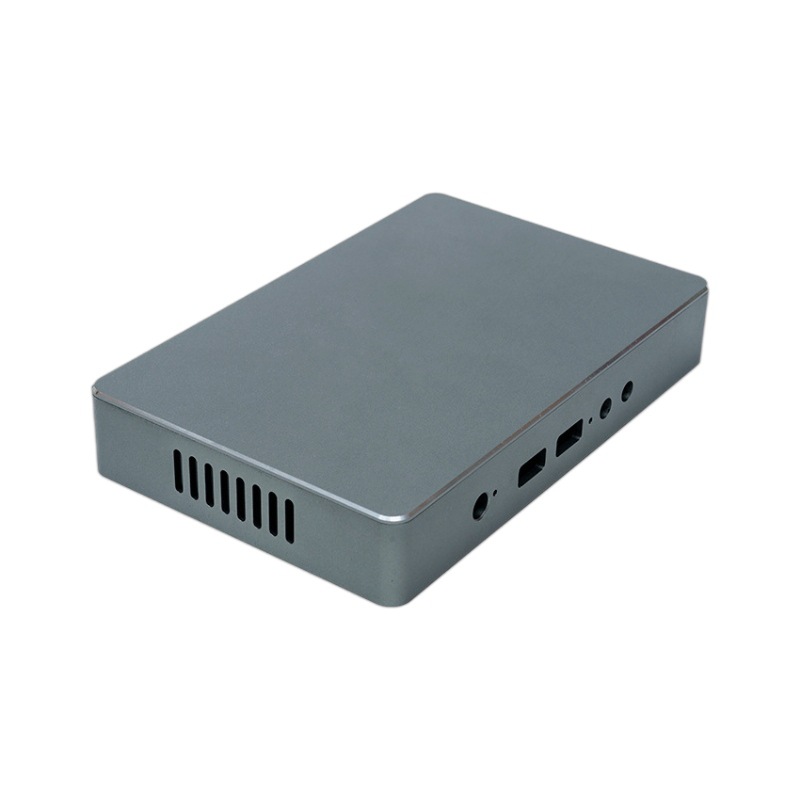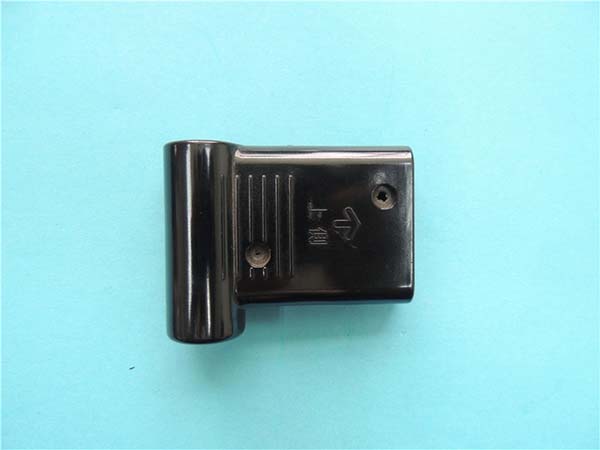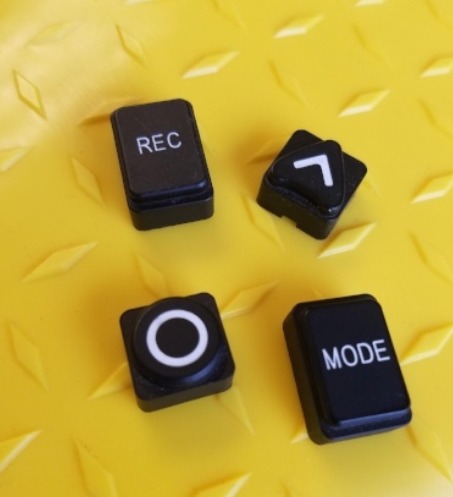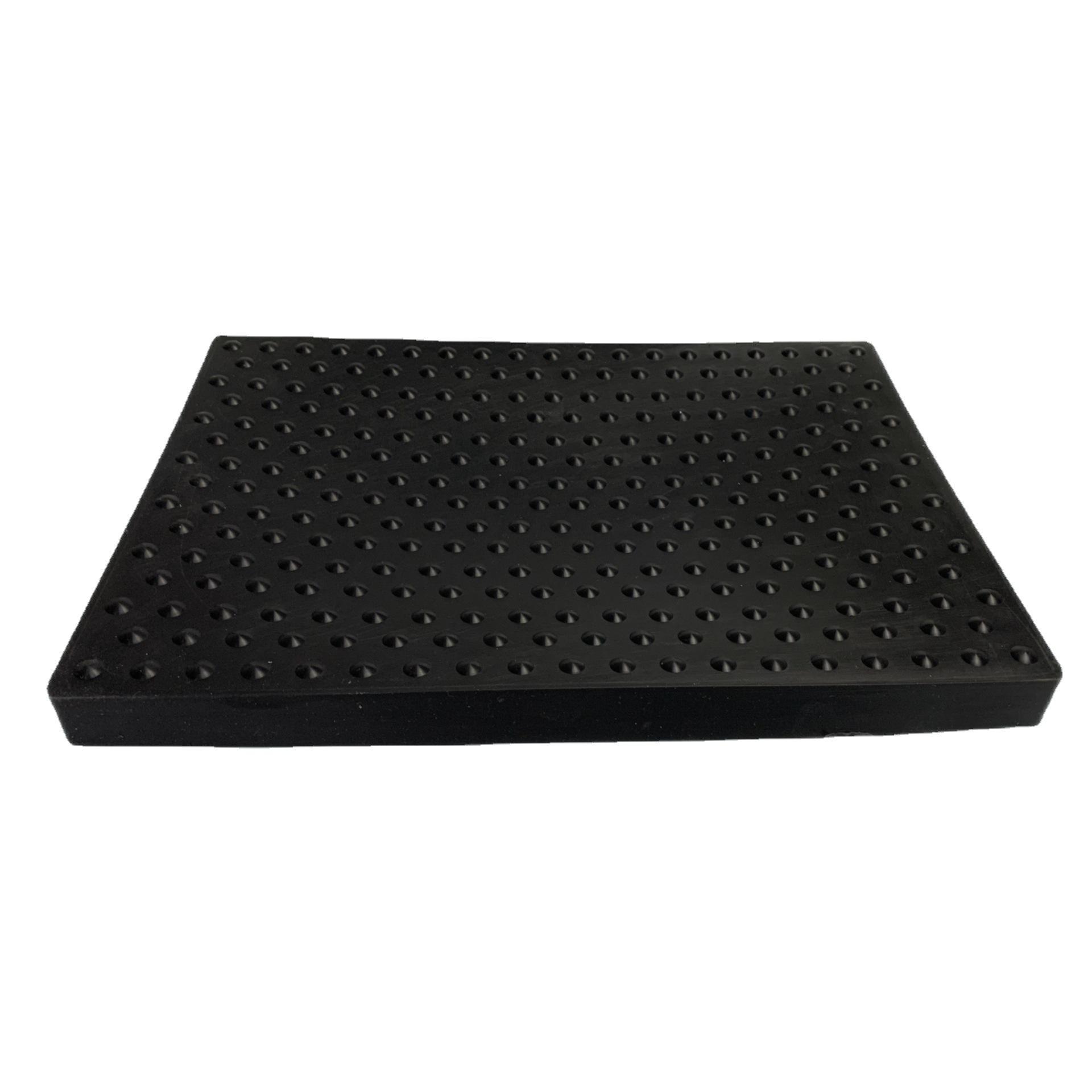What is Custom Plastic Injection Molding?
Custom plastic injection molding is a highly versatile and widely - used manufacturing process. At its core, it involves injecting molten plastic material into a custom - designed mold cavity. The process begins with plastic pellets, which are fed into an injection molding machine. This machine heats the pellets to a specific temperature, turning them into a viscous, molten state.
Once the plastic is in its molten form, it is forced under high pressure into a mold. The mold, which is typically made of steel or aluminum to withstand the high - pressure and high - temperature conditions, has a cavity shaped exactly like the desired final product. This could range from small, intricate parts like electronic components to large, robust items such as automotive bumpers.
After the molten plastic fills the mold cavity, it is left to cool and solidify. This cooling process is carefully controlled to ensure the plastic takes on the precise shape of the mold and achieves the desired structural integrity. Once cooled, the mold opens, and the newly formed plastic part is ejected. This part may then undergo additional post - processing steps such as trimming to remove any excess material (also known as flash), sanding for a smooth finish, or painting for aesthetic purposes.
One of the key advantages of custom plastic injection molding is its ability to produce parts with high precision and repeatability. Since the mold determines the shape of the final product, every part produced will be virtually identical, making it ideal for mass production. For Yigu Technology example, in the production of 10,000 plastic toy components, each one will have the same dimensions and quality, ensuring consistency in the final product.
Key Services Offered
Design and Engineering
The design and engineering phase is the cornerstone of custom plastic injection molding. Our team of highly skilled engineers and designers utilize state - of - the - art CAD (Computer - Aided Design)/CAM (Computer - Aided Manufacturing) technology. With CAD, we can create highly detailed 3D models of the product, allowing clients to visualize the final part even before production begins. For example, we recently worked with a client in the medical device industry. They needed a custom - designed plastic component for a new diagnostic device. Using CAD, we were able to design a part that met all their functional requirements while also optimizing it for manufacturability.
The CAM technology then takes over, translating the design into a set of instructions for the manufacturing equipment. This ensures that the mold is produced with the highest level of precision. Our design team has an average of 10 years of experience in the field, having worked on projects ranging from small consumer electronics parts to large industrial components.
Mold Making
Mold making is a crucial and intricate process in custom plastic injection molding. The first step is material selection. High - quality steel or aluminum is commonly chosen. Steel, for instance, offers excellent durability and can withstand high - pressure injection over long production runs. However, it is more expensive and has a longer machining time. Aluminum, on the other hand, is lighter, less costly, and has better heat conductivity, which can lead to faster cooling times during the injection molding process. But it may not be as durable as steel for high - volume production.
The mold - making process involves several machining operations. CNC (Computer Numerical Control) machining is often used to create the precise cavities and cores of the mold. EDM (Electrical Discharge Machining) is another technique, especially useful for creating complex shapes or features that are difficult to machine conventionally. For Yigu Technology example, if a mold has intricate internal channels for cooling or a very detailed surface texture, EDM can be used to achieve the desired result.
After machining, the mold components are assembled. This requires a high level of precision to ensure that the mold closes tightly and that the plastic material is injected evenly into the cavity. A well - made mold can produce thousands or even millions of parts, depending on the material and the complexity of the design.
Production
In the production phase, our advanced injection molding machines play a vital role. These machines come with a range of parameters that can be precisely controlled. For example, the injection pressure can be adjusted from 500 to 3000 bar, depending on the type of plastic material and the complexity of the part. The injection speed can also be varied, typically from 10 to 300 mm/s.
Our production capacity is quite extensive. We have machines with different shot sizes, allowing us to handle projects of various scales. For small - scale production, such as a run of 1000 units for a prototype or a small - batch product, we can use our smaller machines efficiently. These machines have a shorter cycle time, enabling us to produce parts quickly. For large - scale production, like an order of 100,000 units for a consumer product, our larger, high - capacity machines can handle the volume while maintaining consistent quality.
Secondary Operations
Secondary operations are often necessary to enhance the functionality and appearance of the plastic parts. Assembly is a common secondary operation. For example, if a product consists of multiple plastic components, they need to be assembled accurately. We have experienced technicians who can perform manual assembly for small - scale projects. For larger - scale production, we use automated assembly lines to increase efficiency and reduce errors.
Surface treatment is another important secondary operation. Painting can be applied to add color and aesthetic appeal to the parts. It can also provide protection against environmental factors. Plating, such as chrome or nickel plating, can enhance the durability and give the part a more premium look. Other surface treatments like sandblasting can create a specific texture on the part. These secondary operations are essential in ensuring that the final product meets the highest standards in terms of both form and function.
How to Choose the Right Custom Plastic Injection Molding Service Provider
Choosing the right custom plastic injection molding service provider is crucial for the success of your project. Here are some key factors to consider:
Experience and Expertise
Look for a provider with a proven track record in the industry. A company that has been in business for a long time is more likely to have encountered and overcome various challenges in the injection molding process. For Yigu Technology example, a provider with 15 - 20 years of experience will have dealt with different types of plastic materials, complex mold designs, and a wide range of product requirements.
Check their project portfolio. A diverse portfolio indicates their ability to handle different industries and product types. If you are in the automotive industry, you want to see if they have experience in producing automotive - related plastic parts, such as interior components or exterior trim. Additionally, assess the qualifications of their technical team. The engineers and technicians should have relevant degrees in mechanical engineering, plastics engineering, or a related field, along with hands - on experience in mold design, machine operation, and quality control.
Quality Assurance
A reliable service provider should have a robust quality assurance system in place. ISO 9001 certification is a good indicator. This certification ensures that the company follows international standards for quality management, from the initial design phase to the final product delivery.
In - house quality inspection processes are also vital. They should conduct regular inspections at every stage of production, from raw material testing to in - process checks during injection molding and final product inspection. For instance, using advanced inspection equipment like 3D coordinate measuring machines (CMMs) to ensure that the dimensions of the plastic parts are within the specified tolerances. They should also have a system for handling non - conforming products, with clear procedures for rework or scrap disposal.
Equipment and Technology
Advanced equipment is essential for high - quality production. Modern injection molding machines offer better precision, faster cycle times, and more control over the injection process. For example, some of the latest machines can adjust the injection pressure and speed in real - time based on the feedback from sensors, ensuring a more consistent product quality.
Automated production technologies, such as robotic arms for part removal and material handling, can improve efficiency and reduce human error. Additionally, the use of computer - controlled systems for mold temperature regulation and process monitoring can lead to more stable production conditions. A provider that invests in the latest equipment and technology is more likely to meet your production needs in terms of quality, quantity, and cost - effectiveness.
Customer Service
Good customer service can make a significant difference in your overall experience. The provider should respond promptly to your inquiries. If you send an email or make a phone call, you should expect a response within 24 hours, if not sooner.
During the project, they should keep you updated on the progress, providing regular reports on production status, any potential issues, and solutions. After - sales support is also important. In case there are any problems with the delivered products, they should be willing to work with you to resolve them quickly, whether it's through product replacement, repair, or providing technical advice. A provider that values customer satisfaction will go the extra mile to ensure that your project is a success.
Yigu Technology's View
As a non - standard plastic metal products custom Supplier, Yigu Technology believes that custom plastic injection molding services should focus on innovation and meeting customer needs. With years of experience and a professional team, we can provide customers with one - stop solutions from design to production. We utilize advanced equipment and technology to ensure high - precision and high - quality products. Moreover, we are flexible in handling various customization requirements, whether it's a small - batch production for a new product prototype or a large - scale production for a mature product. Our goal is to help customers turn their ideas into high - quality plastic products efficiently and cost - effectively.
FAQ
What types of plastics can be used in custom plastic injection molding?
Commonly used plastics in custom plastic injection molding include ABS (Acrylonitrile Butadiene Styrene), which is known for its strength, impact resistance, and good surface finish, making it suitable for applications like automotive interiors, electronics housings. Another one is PP (Polypropylene), characterized by its high chemical resistance, low density, and heat resistance, often used in food containers, automotive parts, and industrial components. Then there's PE (Polyethylene), which comes in different grades such as HDPE (High - Density Polyethylene) and LDPE (Low - Density Polyethylene). HDPE is rigid and strong, used for products like pipes and buckets, while LDPE is more flexible and is often used in plastic bags and some types of packaging. There are also engineering plastics like PC (Polycarbonate) with excellent optical properties, high impact strength, and heat resistance, ideal for applications like eyewear lenses, automotive lighting components, and safety helmets.
How long does the custom plastic injection molding process usually take?
The time required for the custom plastic injection molding process varies. Generally, from the initial design phase to the production of the first prototype, it can take around 2 - 4 weeks. This includes design development, mold making, and initial testing. Once the design and mold are finalized, for small - scale production runs (e.g., 1000 - 5000 units), the production time might be about 1 - 2 weeks, depending on the complexity of the part and the capacity of the injection molding machines. For large - scale production (e.g., 50,000 - 100,000 units or more), it could take several weeks to a few months. Factors that affect the time include the complexity of the mold design, the availability of raw materials, and the production schedule of the injection molding facility. Delays can also occur if there are issues with quality control or if design changes are required during the process.
Do I need to provide my own mold for custom plastic injection molding?
In most cases, you don't need to provide your own mold. Reputable custom plastic injection molding service providers, like Yigu Technology, offer mold - making services. Our experienced mold - making team can create high - quality molds based on your product design. We use advanced CNC machining and EDM techniques to ensure the precision of the mold. If you already have a mold, the injection molding service provider can also use it, but they will conduct a thorough inspection to make sure it is in good condition and suitable for the injection molding process. However, having the service provider make the mold often ensures better compatibility with their injection molding machines and overall production process, and they can also provide mold maintenance and repair services throughout the production lifecycle.
